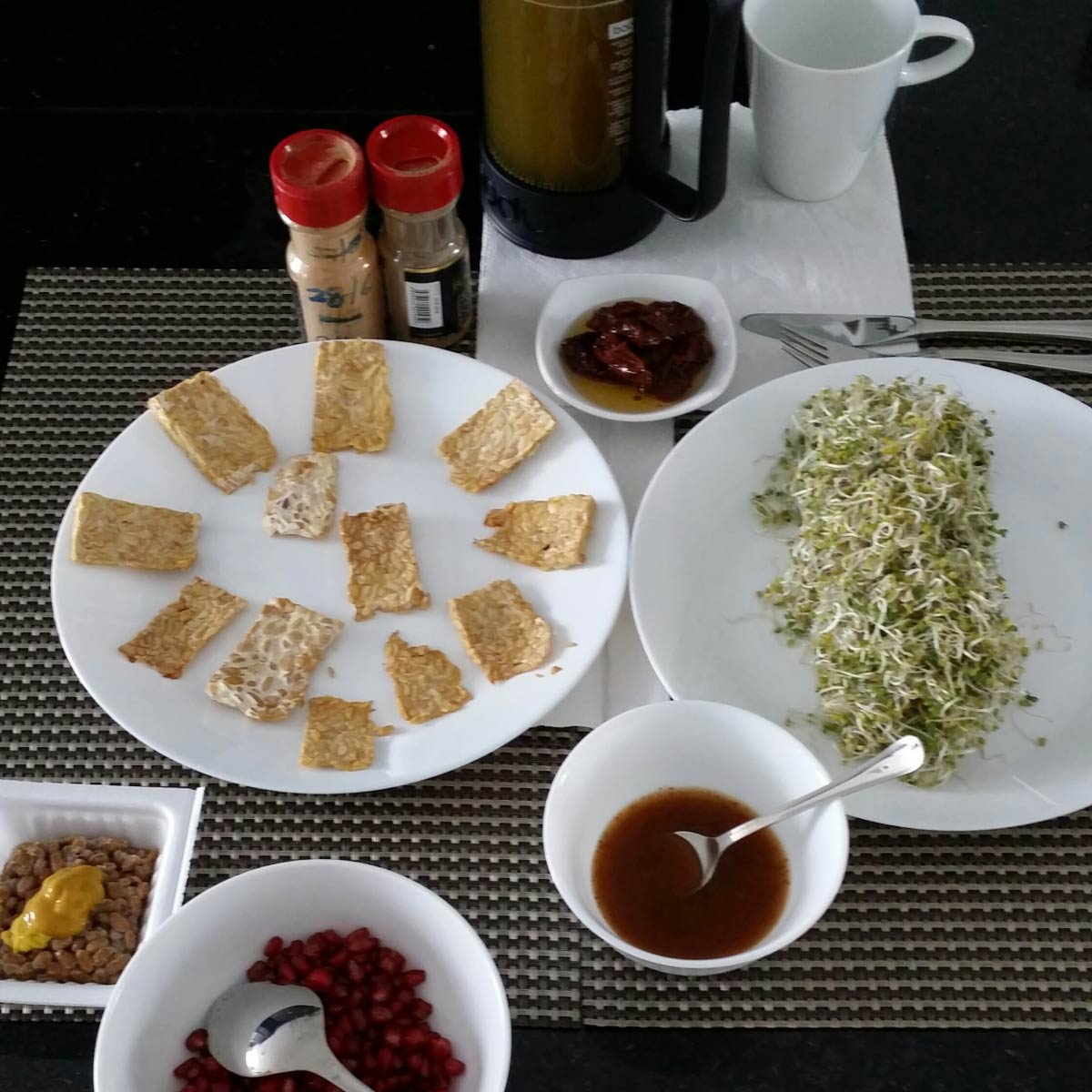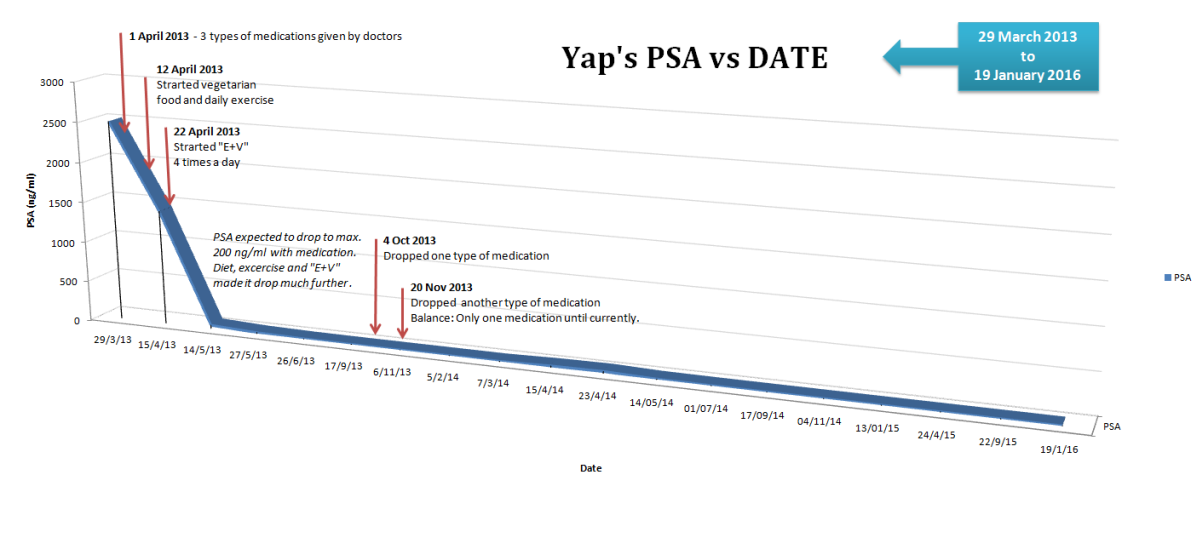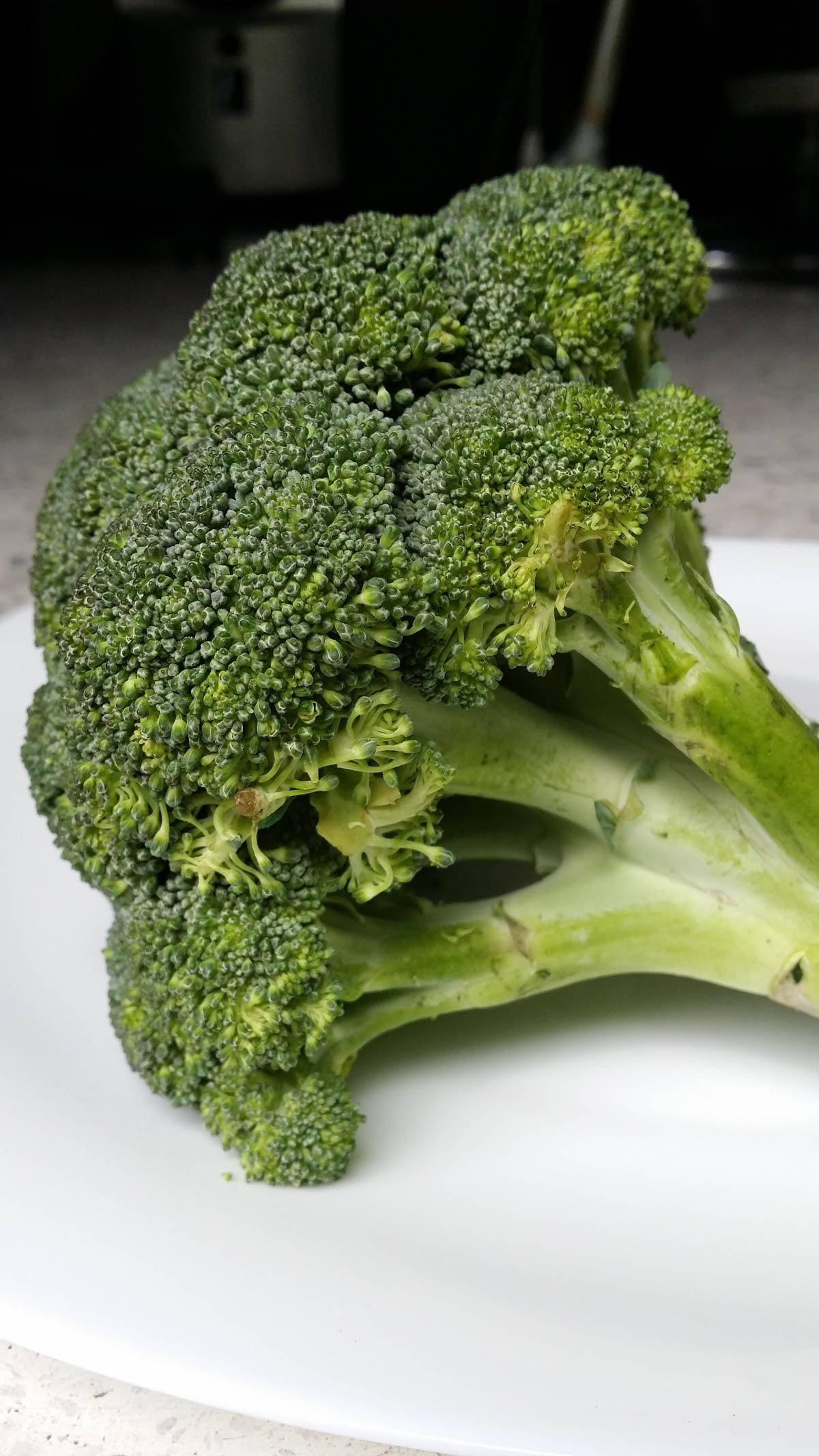Re: Sharing of " Yap's Diet" on WhatsApp
The content of this page was posted originally on WhatsApp Messenger over a few months in 2014 . However, it has been updated: 17 March, 2016 19:41
Welcome!
I hope to receive your kind understanding for the following general issues that I am sending to everyone in this group messaging.
My Advanced Prostate Cancer
Please click this link for MyPCStory.Understatement:
1. I do not know if my diet works the same way for you.
2. Stop if any of the food is unsuitable for you.
3. Please do not stop your current treatment to try my diet.
4. I may not be able to answer all your questions.
5. Please tolerate any shortcoming as I try to do my first sharing of my experience regarding my diet.
Personal statement:
1. I am happy and confident with the food I am eating to reduce the severity of my advanced prostate cancer.
2. I do not have any sickness other than the prostate cancer that I am having.
3. I have found all the food to be safe to eat.
4. They did not produce any side effect in my body.
5. I have found the food complementary to my medications when I was on them.
6. Actually, my diet is best for those who wish to use it to reduce their chances of having prostate cancer and those whose prostate cancers are not as advanced like mine.
7. I will do my best to share weekly until completion.
Your part:
1. You must have the will-power to follow my diet daily for good results.
2. If possible, get the support from your family who can push you when you want to give up this diet.
3. Your doctors should understand if you are taking the food to complement their medication.
Week 1 - Sharing Of Yap's Diet
Thank you all for your patience and encouragement.
Some have shared with me that their cancers are different for which they wish to see if they can also consider my diet to improve their situations. I thank them for telling me. It has encouraged me to conduct a quick check on the latest available literature on the Internet pertaining to each of the foods that has worked for my prostate cancer. I have found that my food also works for people with colon and breast cancer.
I started on my diet more than two and a half years ago with the intention of complementing and improving the actions of my medication. After taking them for a few months, I observed a drop of my cancer marker to a very low figure despite the removal of my medication one by one. Of course, my doctors were unhappy to grant my request for the removal of all medications at first but were at ease after my cancer marker remained at its lowest level despite me not being on any medication for over 2 months, a level that was 99.99% less than my original PSA (Prostate-Specific Antigen) figure. My doctors were surprised by my blood test results as they went against their best estimates. Consequently, I managed to save tens of thousands of Ringgit and feel healthier, overall-wise.
I attribute the good response to my diet that complemented and improved the actions of my medication.
Having said, it is really a regimen of actions namely Japanese blood-conditioning supplements and exercises in addition to my diet that I feel contributed to the performance of my treatment. I wish to outline them as follows, and I shall try to explain each one clearly as I share my knowledge week by week, barring any unforeseen circumstances.
What I intend to share?
1. What food do I avoid daily?
2. How and why conditioning of blood is the important first step?
3. What are the types of food that I am using to suppress or treat my prostate cancer? Why did I use them?
This week's sharing:
1. Animal proteins from meat eg. those from chicken, beef, pork, etc.. I eat white fish occasionally.
2. Food that contains excessive oil and fat, including deep fried food.
3. Refined-sugar.
4. Water stored in plastic containers with BPA (Bisphenol A).
5. Products made from milk- anything that contains butter, milk, cheese.
6. Eggs.
What do I take daily:
1. Vegetarian-food with low salt content and without milk, eggs, cheese and sugar.
2. Brown rice.
3. Multi-seed bread.
Of course, twice a day I take food to suppress or treat my prostate cancer. As per my program, I shall write the details a bit later. Please bear with me while I proceed with my information step by step.
Thank you.
Week 2: Sharing Of Yap's Diet
How and why conditioning of blood is the important first step?
Currently, I am taking two Japanese products which I call "E+V" recommended by Mr. Matsuo, a friend of more than 35 years, to improve the condition of my blood. They contain extracts of fermented grains and beans produced by him in Nagoya, Japan via a patented process.
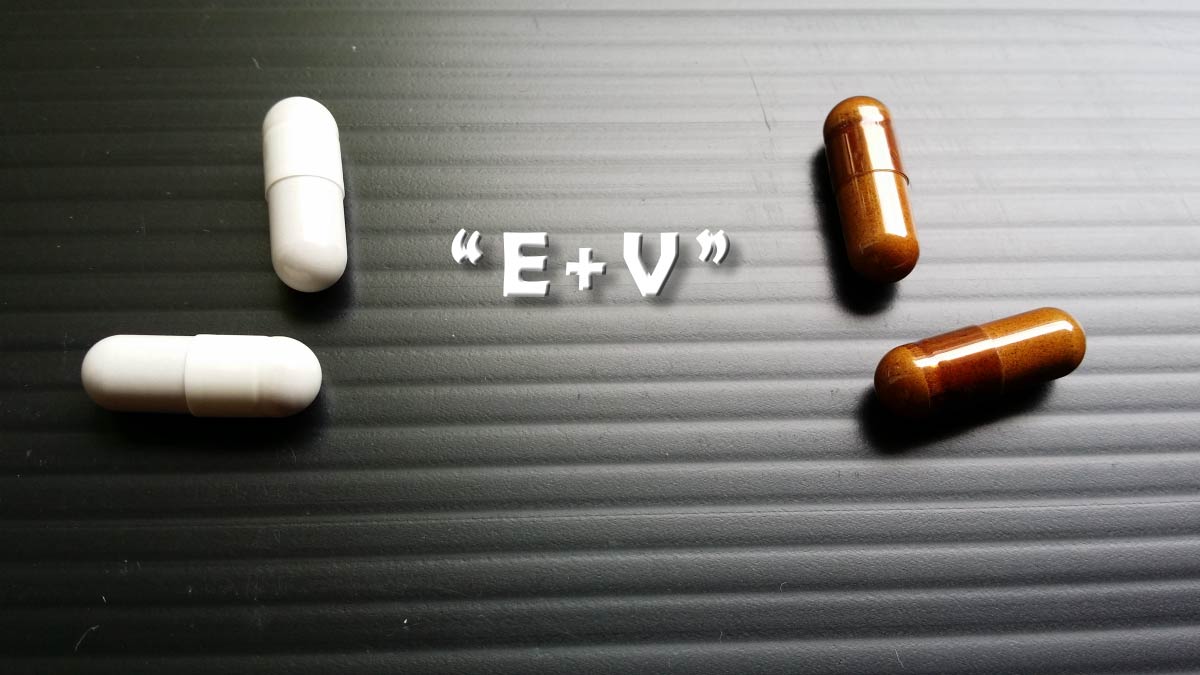
Why do I need to improve the condition of my blood?
According to Mr. Matsuo, intracellular inflammation causes red blood cells (RBC) to stick together forming aggregates. Please see the aggregation of my RBCs in the picture below taken in April 2013 when I was first diagnosed with prostate cancer.
Blood Cells Before "E+V"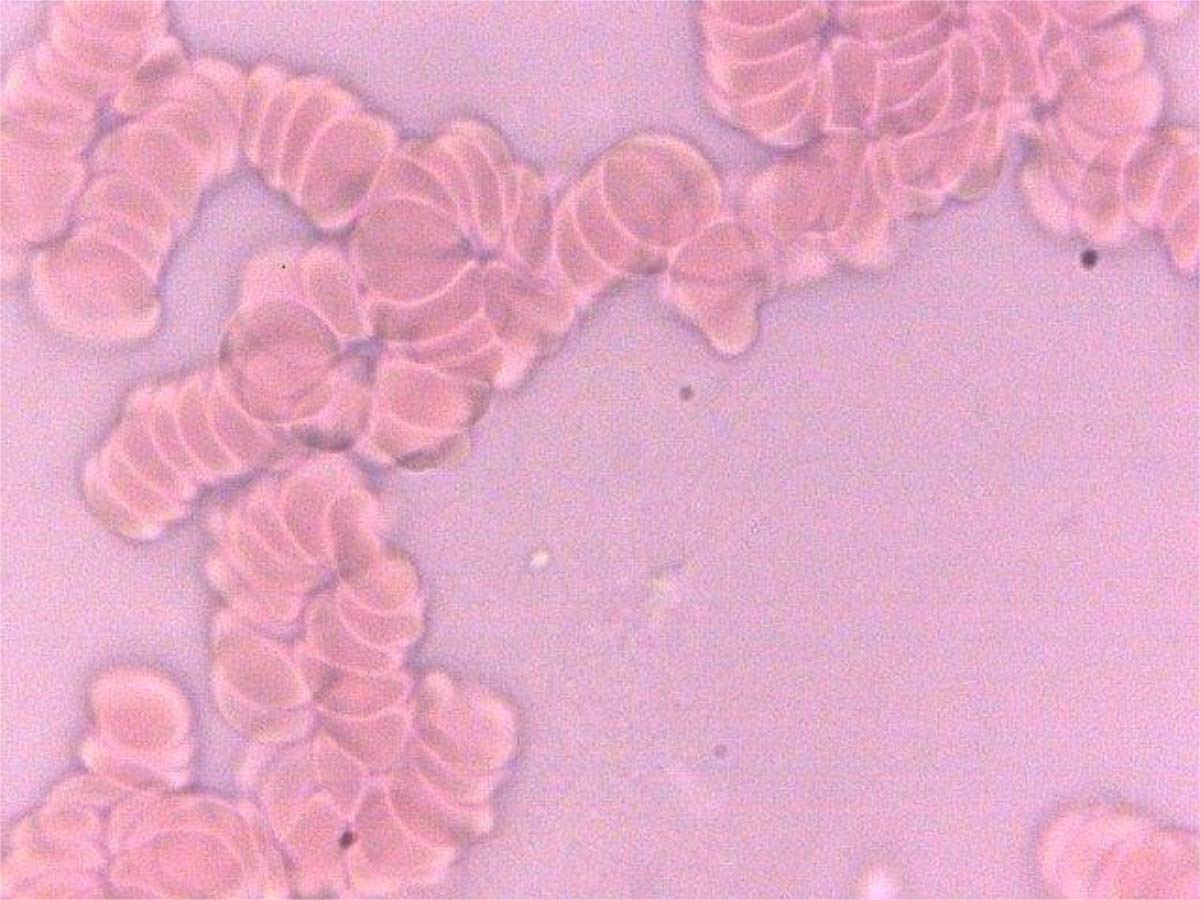
Aggregated RBCs can't pass through capillaries to provide oxygen to body tissues. They also obstruct the flow of nutrients from food, and drugs.
Why am I using "E+V"?
1. They are products approved for sale as food in Japan
2. They could separate my aggregated RBCs within a short time. Please see a picture of my capillary blood 40 minutes after taking the products.
Blood Cells 40 Minutes After "E+V"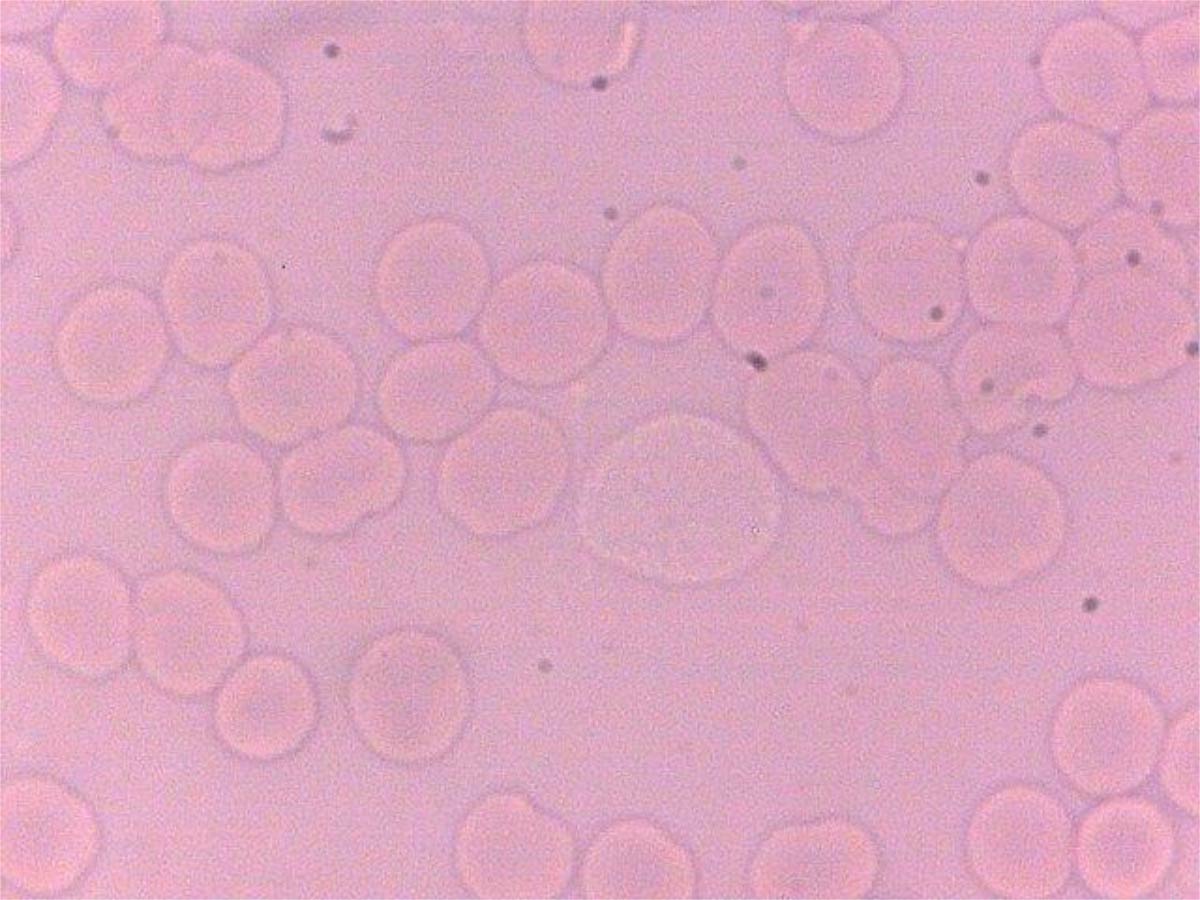
b) They can repair RBCs of abnormal shapes into normal RBCs and make them substantially circular shaped.
Appended below is a picture of my blood taken in March 2014
Blood Cells In March 2014, One Year Later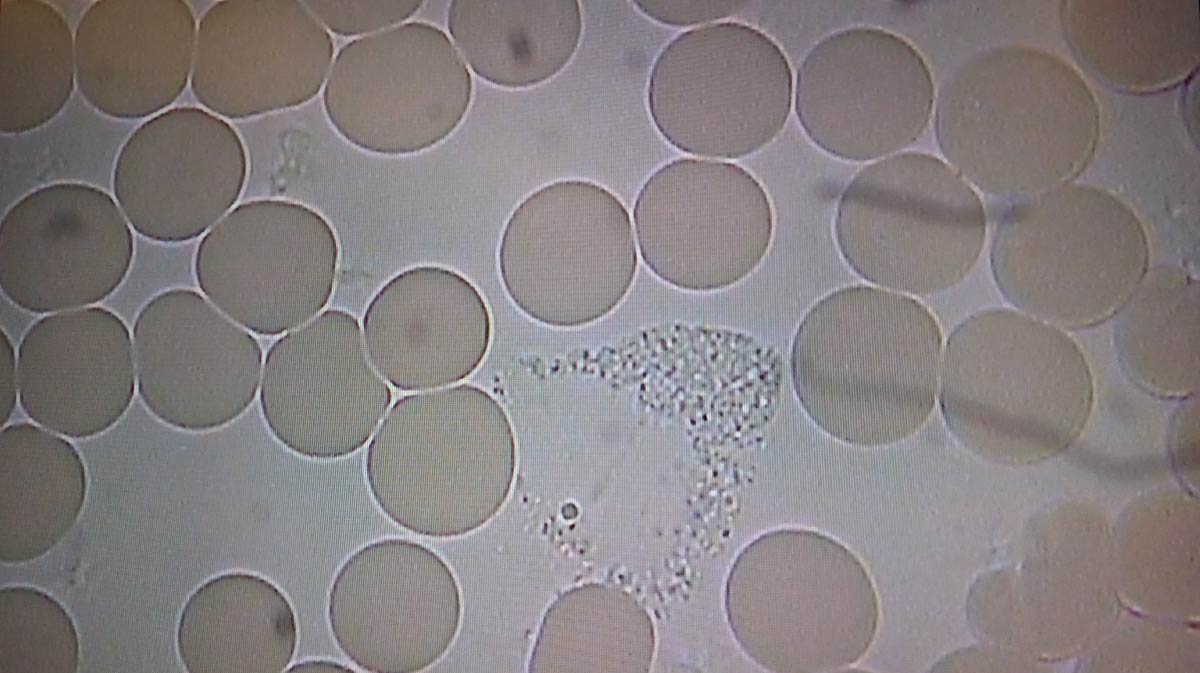
What do all this mean?
A good blood delivery system offers:
1. Efficient flow of Oxygen and nutrients from food.
2. Efficient delivery of drugs.
3. Improved auto-immune capability.
How much does it cost me to take the 2 products?
Approx. RM1,600 to RM2,000 Malaysian Ringgit per month depending on the exchange rate of Jap. Yen and whether the recommended dosage is 3 or 4 times a day. If you have any question, please feel free to ask. Thanks.
You may contact Yap M.T. for more information on "E+V". Click Here | For currency conversion, Click Here.
Week 3: Sharing Of Yap's Diet
What are the types of food that I am using to suppress or treat my prostate cancer? Why do I use them?
Before I start my sharing on the foods that I take daily to suppress or treat my prostate cancer, I wish to bring to your awareness the following matter.
If you don't follow what I do not eat, you may not get full benefits from the types of food for cancer that I will share later. It is simply because what you are eating now may load your system with intracellular inflammation that Yap's Diet is trying to reduce thus nullifying the effects. In addition, you have to note that the quantities of active functional ingredients absorbed from the food of Yap's Diet are extremely small. Therefore, understandably, we need a well-conditioned blood system to transport enough of these minute quantities of substances to the cancer cells to affect them efficiently.
So far, my blood test results have been consistently good. It indicated that it is important to follow the whole regimen of my diet.
The types of food that I take daily to suppress or treat my prostate cancer are as follows:
Pomegranate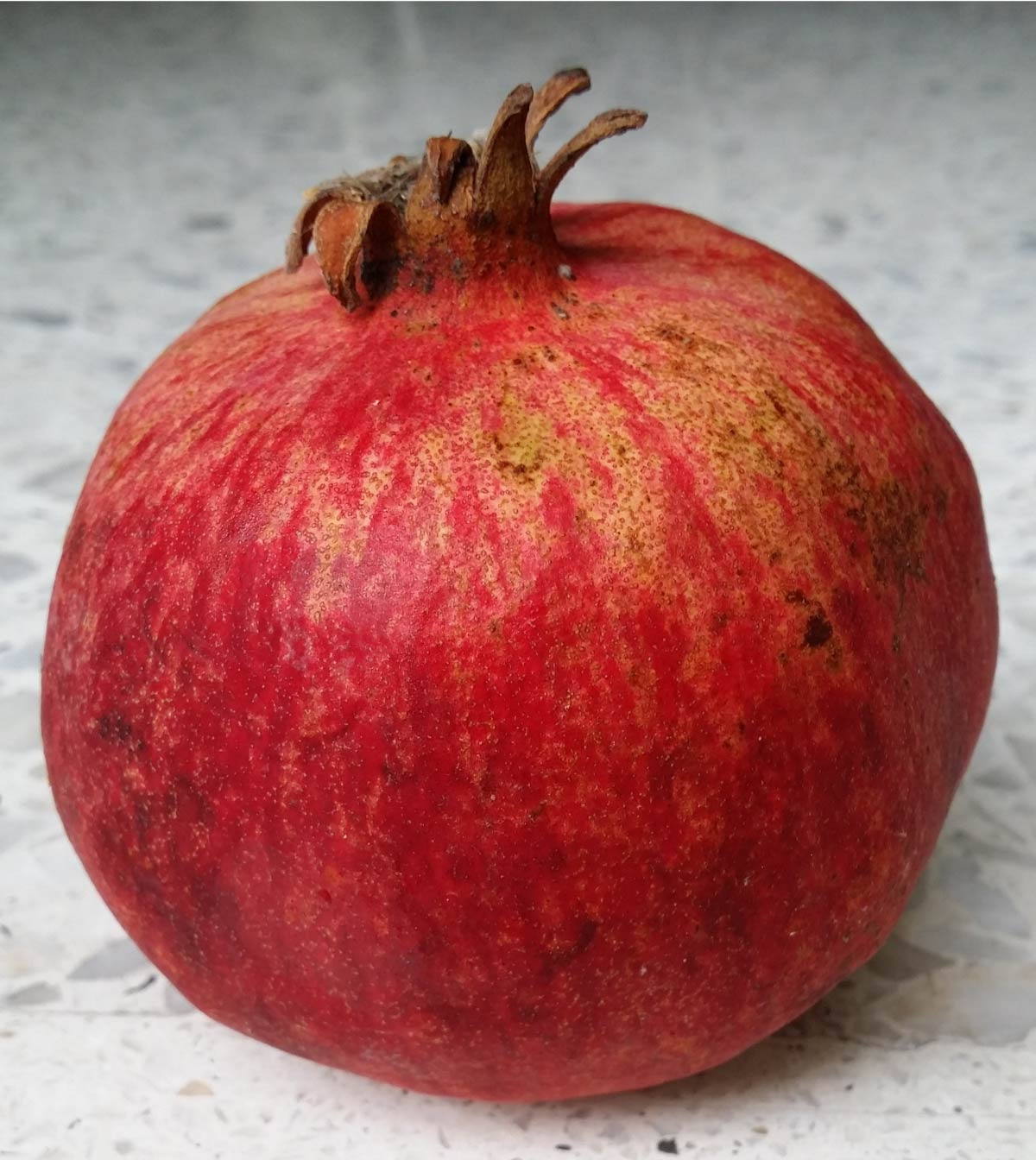
Tempeh 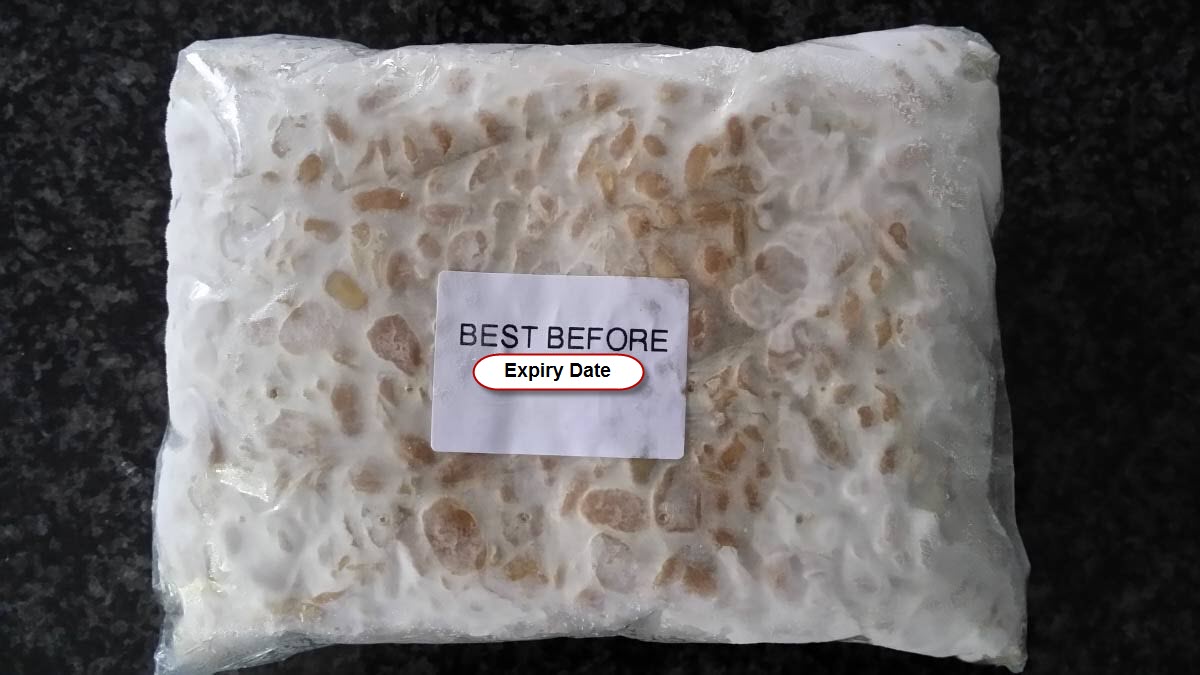
Green Tea 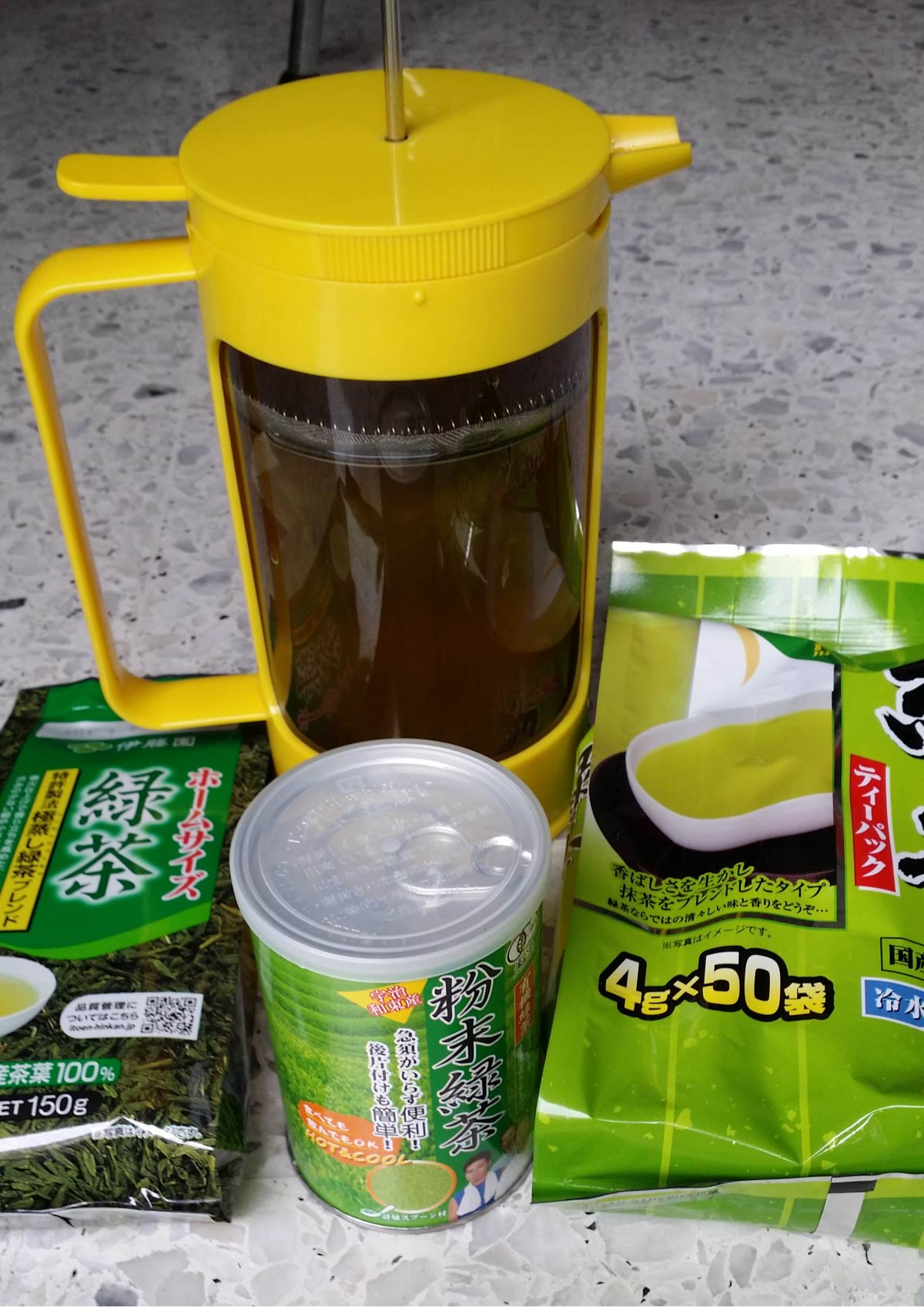
Sun-dried Tomatoes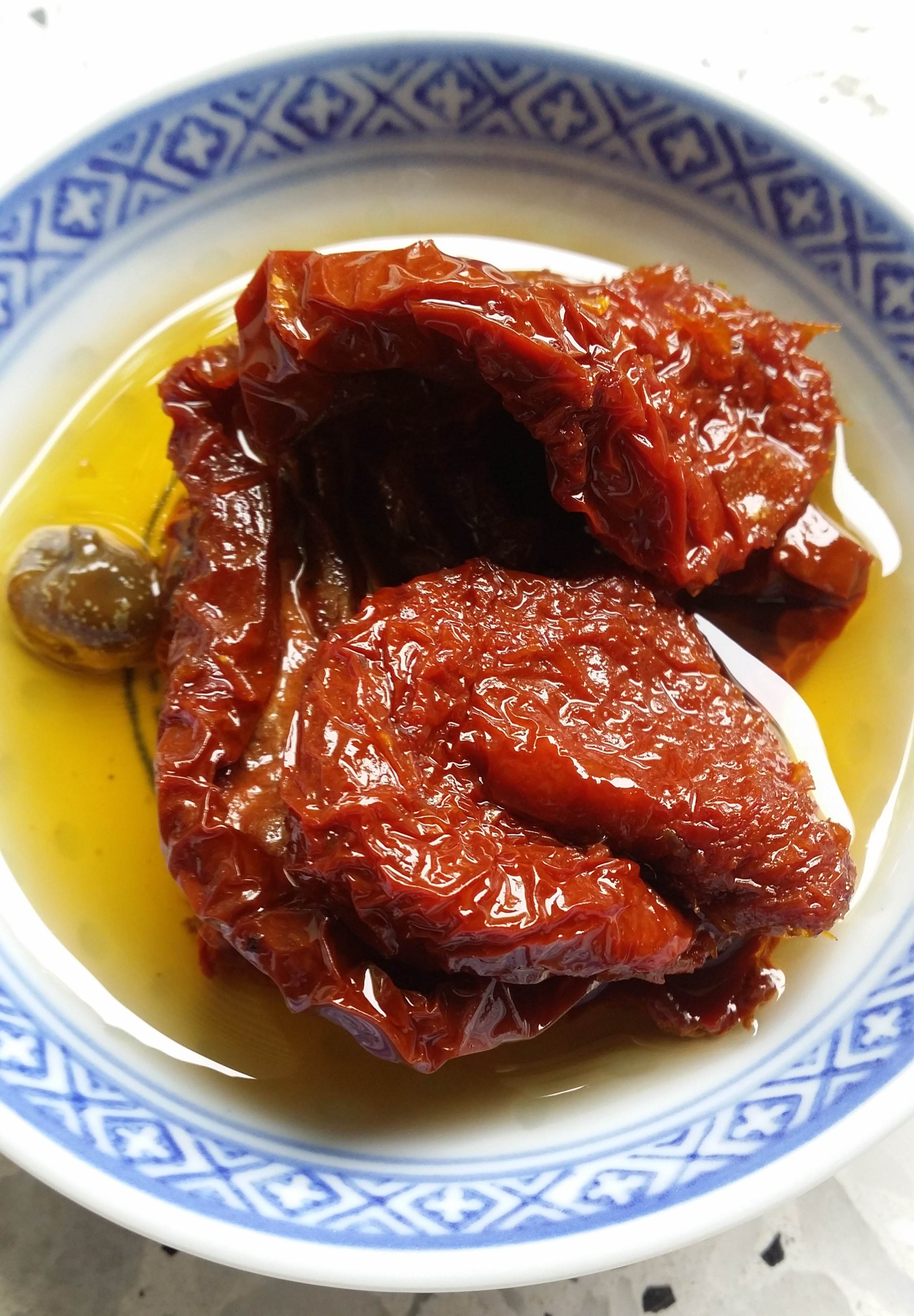
Why and how am I eating broccoli?
Broccoli has an active functional nutrient called Sulforaphane. Researchers have found that:
1. Sulforaphane inhibits histone deacetylase, an intracellular enzyme that causes cancer-fighting genes to be turned off. As a result, those genes are turned on to fight cancer cells once again.
2. Sulforaphane destabilizes androgen receptors on prostate cancer cells causing the cells to die.
3. Sulforaphane inhibits inflammatory signals to the nucleus of cancer cells thereby preventing adverse effects from happening to genes that will make more cells cancerous.
4. Sulforaphane potently induces the production of phase 2 enzymes in cancer cells, which are deficient in them. These enzymes protect cells against free-radicals.
5. Sulforaphane accumulates inside cells more than in the blood. It explains why it is such a powerful anti-cancer agent.
6. Sulforaphane was shown in lab. experiments to target and kill cancer stem cells thus preventing the growth of new malignancies.
7. Sulforaphane acts synergistically with the active functional nutrients in green tea and tempeh to produce a more powerful anti-cancer effect.
8. Very recently, researchers have found that if we eat food that contains lutein, zeaxanthin and Vitamin C, it can lengthen the telomere or end cap of chromosomes thereby extending our lives. These three substances are present in broccoli.
9. Sulforaphane promotes the growth of skeletal muscles.
10. In 2013, researchers discovered that broccoli protects cartilage from destruction and could help to prevent or slow osteoarthritis.
Besides prostate cancer, researchers have found that Sulforaphane in broccoli is also effective for the suppression or treatment of breast, lung, stomach, bladder, colon cancer.
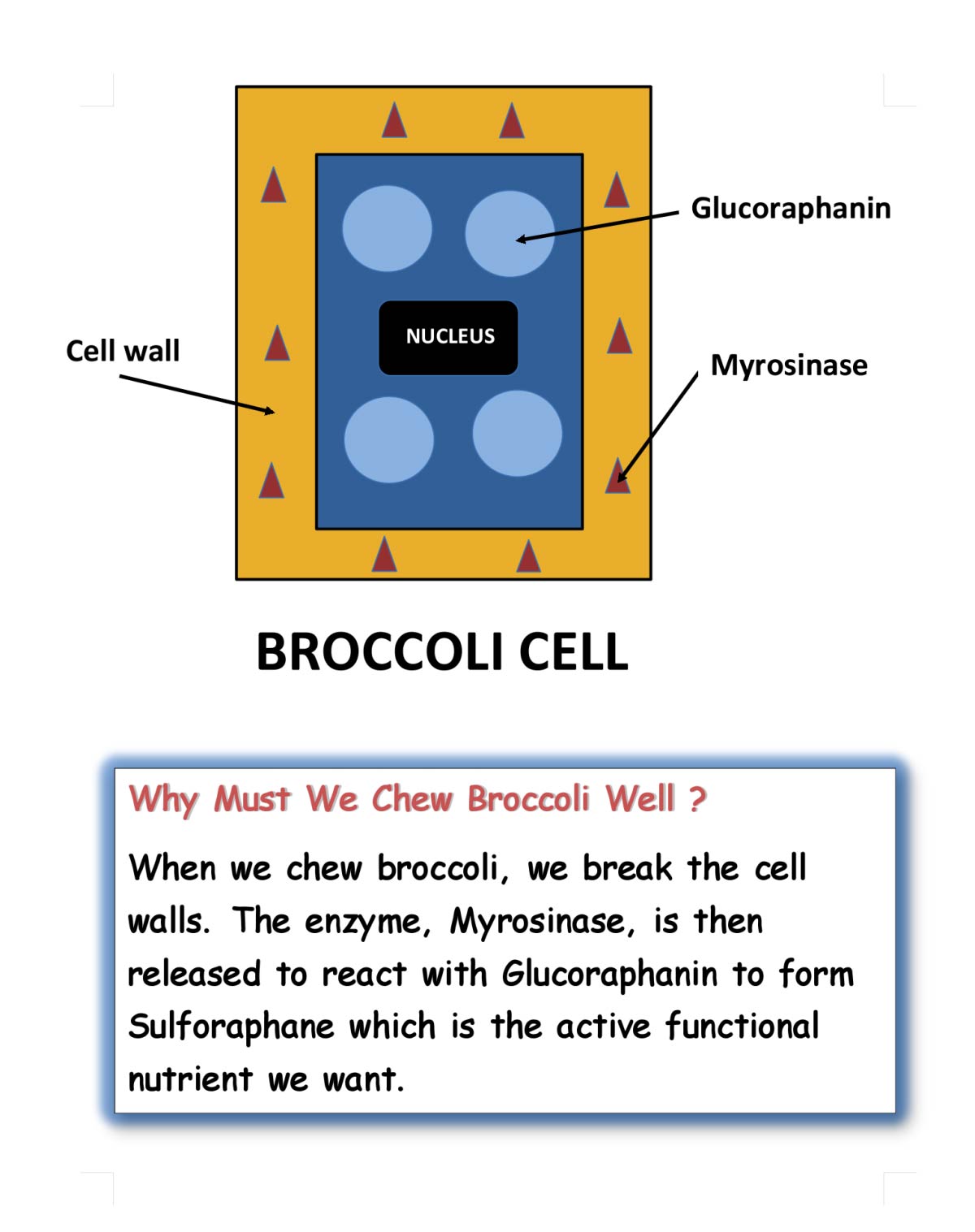
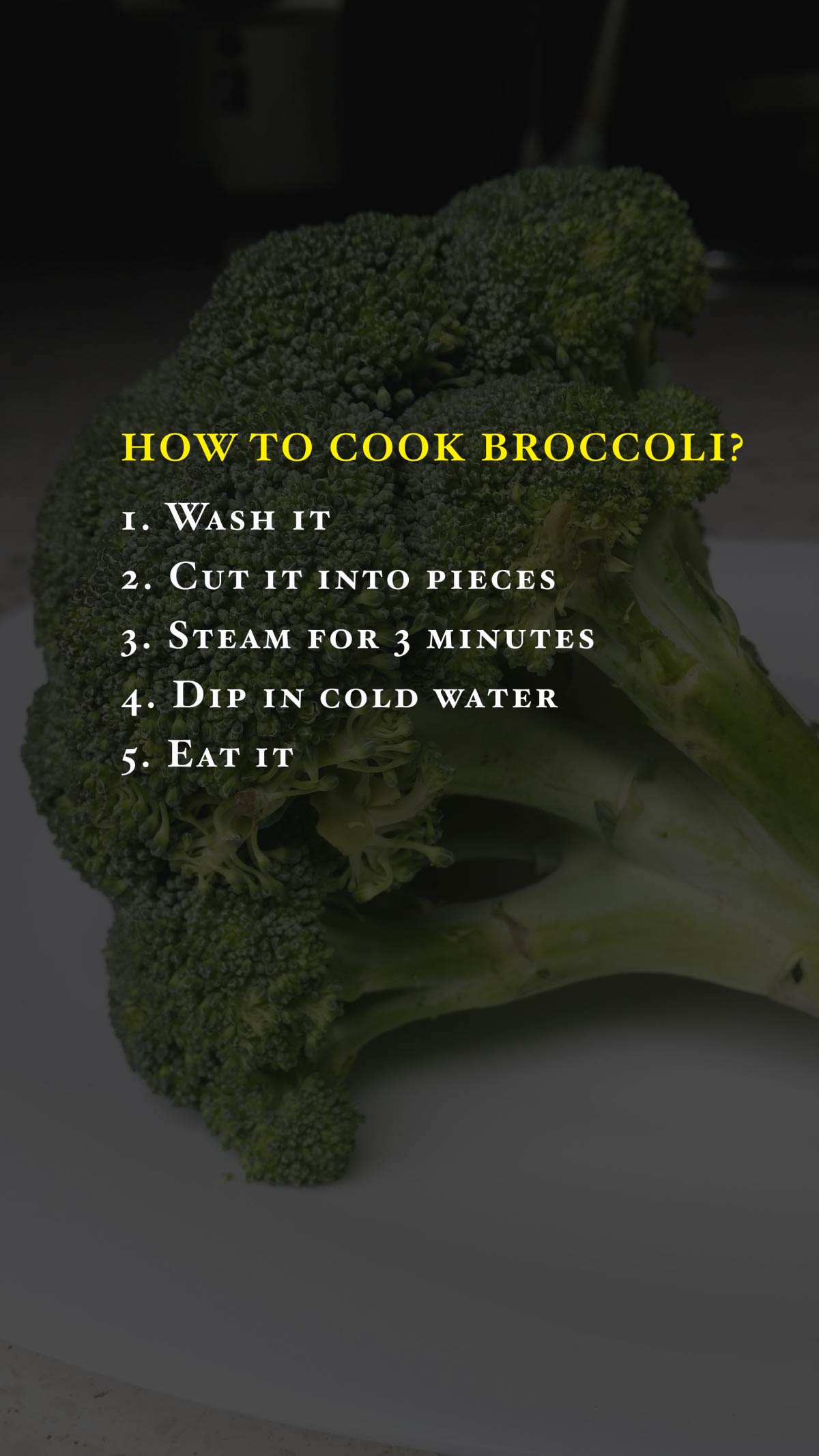
Week 5 - Yap's Diet
How am I eating the pomegranate?
Pomegranate seeds have an outer water-laden pulp ranging in color from white to deep red or purple. One must chew and eat the whole seed and not just the juice.
Why? It is because the juice can be inflammatory but eaten as a whole, it is not. Pure pomegranate juice is bad for people with Parkinson's disease as it increases oxidative stress in these people.
There are a few ways to remove the seeds from the fruit. It's best to:
1. Cut off the top and bottom.
2. Slice open the fruit at their septums.
3. Remove the seeds from their membranous septums.
Pomegranate Seeds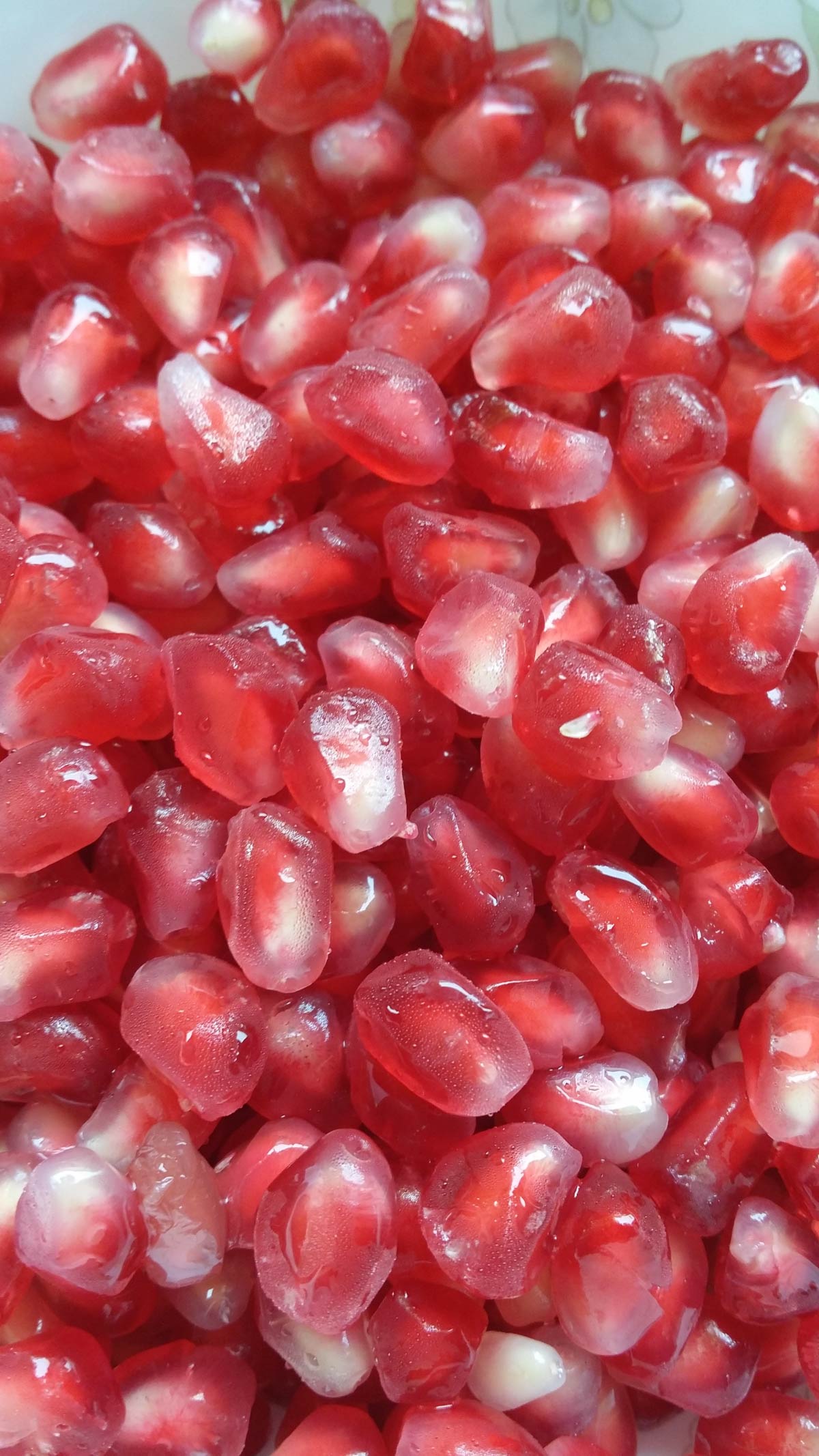
Why am I eating the pomegranate?
From several research papers, I have found the following information on pomegranate for my own use.
1. It is a potent scavenger of free-radicals that if present in excess can cause cells to become cancerous.
2. It has 2-3 times the anti-oxidant capacity of either red wine or green tea.
3. It has been found to inhibit prostate cancer metastasis.
4. Long term pomegranate consumption could help slow the growth of recurrent prostate cancer.
5. It acts on both the hormone treatable and hormone non-treatable prostate cancer cells.
6. It has antidepressant and pain relieving effects.
7. It can prolong PSA (prostate-specific antigen) doubling time significantly.
8. It has vitamin C, vitamin E, folate and potassium
9. Other benefits: It inhibits oxidation of the bad LDL cholesterol, reduces blood pressure, osteoarthritis, anemia, diarrhea, gynecological diseases, atherosclerosis development (heart disease-fighting), Alzheimer's disease, whitens skin, improves sperm quality.
Besides prostate cancer, researchers have found pomegranate to be also effective for cancer of the colon, breast, lung, skin and leukemia.
Week 6 - Yap's Diet
Tempeh - Sliced And Lightly Oven-Toasted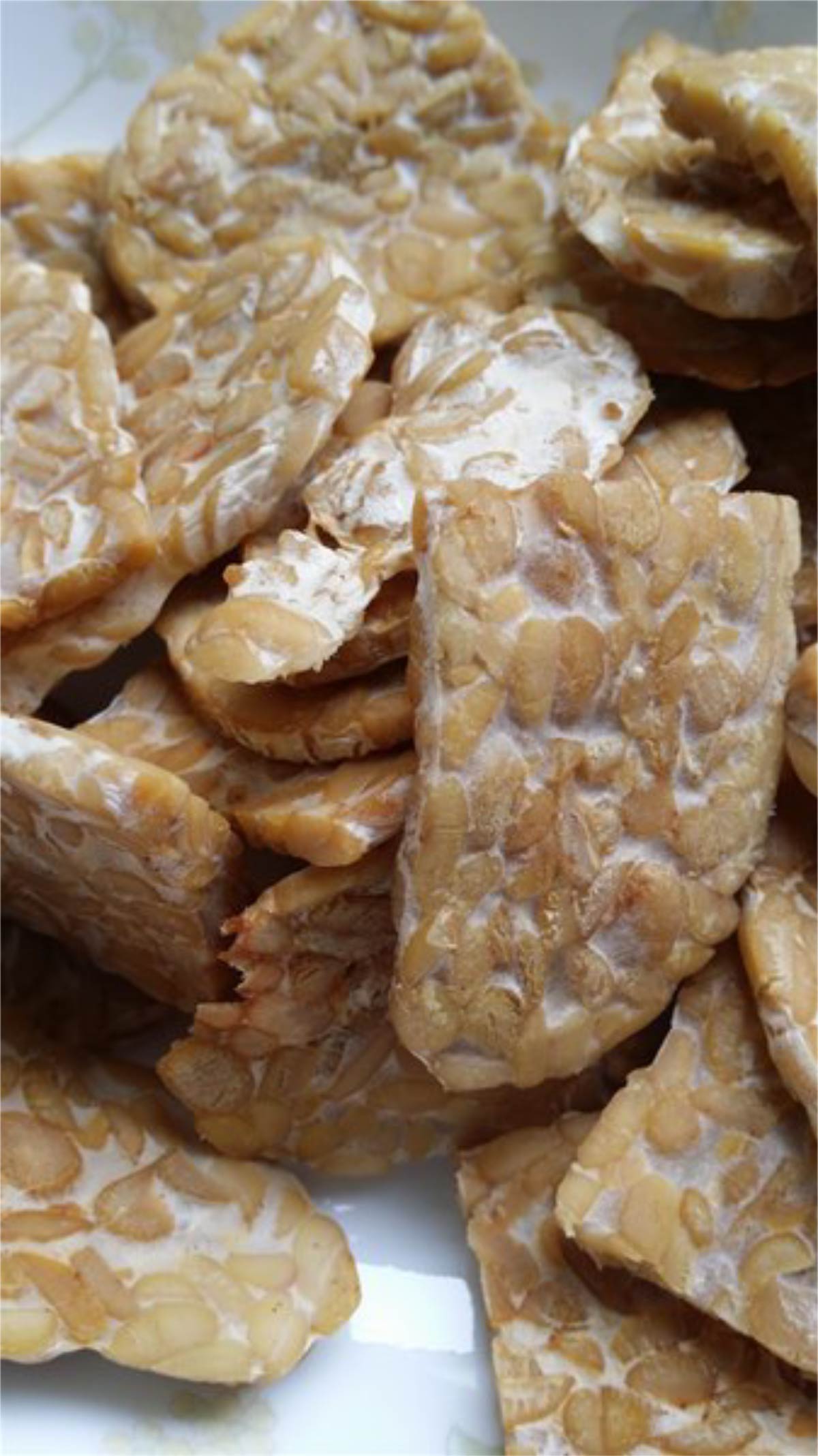
Tempeh is made from soya beans by fermenting them with a safe-to-eat fungus. It has a short expiry date. It originated from Indonesia but can now be bought even in London of a type made in The Netherlands.
One should not eat too much of tempeh daily. The recommended maximum consumption for a day is 200-250g. This offers 35-40g of protein, sufficient to cover all the protein requirement for the day, according to Cedars-Sinai Hospital, USA.
How do I eat tempeh?
1. I sliced it into thin pieces.
2. I then toasted them in the oven until slightly yellowish - for optimum nutritional value. They should also be a bit soft and not come out crispy in which case they are overcooked.
3. In addition, I used a bit of Marmite to add some taste.
Why am I eating tempeh?
According to research papers that I have read:
1. Tempeh is the best form of food made from soya beans which if not fermented can cause mineral deficiencies that many traditional vegetarians suffer from.
2. Tempeh is high in vegetable protein at 18%.
3. Tempeh has an active functional nutrient called Genistein. It has been found to:
- Inducing apoptosis, programmed death of cancer cells.
- Inhibiting tumor cell proliferation and cell cycle arrest.
- Inhibiting angiogenesis, the formation of new capillaries around tumors. Genistein is the most potent plant derived inhibitor.
- Enhancing anti-oxidant enzyme activities.
- Attenuates cancer stem cells characteristics - via the Hedgehog-Gli1 signaling pathway.
a) Inhibit bone degradation substantially thereby retaining bone mass, at low concentrations.
b) Inhibit prostate cancer cell growth.
c) Inhibit
prostate cancer bone metastasis.
d) Restore drug accumulation in cancer cells that have become drug-resistant by inhibiting the proteins that cause multi-drug resistance.
e) Attenuates osteoporosis by blocking activities that cause excessive loss of minerals from bones.
f) Inhibits atherosclerosis.
g) Good for chronic nose-bleed, cystic fibrosis, allergic diseases.
h) Up-regulates expression of antioxidant genes thereby reducing intracellular inflammation.
i) Prevent and treat cancer by:
Apart from prostate cancer, the active functional nutrients in tempeh have been found to work in cases of colon, bladder, breast, melanoma cancer via anti-proliferation, apoptosis, cell differentiation, antioxidant, angiogenesis.
Week 7 - Yap's Diet
Green tea is one of the nature's most potent agents in protecting the body against a host of illnesses. It is prepared by steaming freshly harvested leaves to prevent oxidation.
Green Tea
What's the better way to drink green tea?
Green tea has EGCG (Epigallocatechin gallate) which acts in a number of ways to control the growth of cancer cells. However, it is poorly absorbed by the body.
Tip: Add black pepper to overcome the problem. Drink green tea when eating tempeh and broccoli. Researchers have found that when taken together, piperine in black pepper, genistein in tempeh and Vitamin C in broccoli increase the absorption of EGCG by the gastro-intestinal tract.
How am I taking green tea?
1. 2 sachets of green tea in l litre of hot water.
2. Add some black pepper.
3. Mix them in a press coffee maker
4. Drink the green tea while eating tempeh and broccoli.
Why am I taking green tea?
According to research papers that I have read:
1. EGCG, an active functional nutrient with a concentration of 100 to 150 mg in a cup of brewed green tea, may inhibit the growth of prostate cancer cells by:
a) Inhibiting proliferation of cancer cells.
b) Inducing apoptosis or otherwise known as programmed cell death.
c) Acting as a sensitizing agent in hormone dependent prostate cancer cells.
d) Inhibiting telomerase, an enzyme that prolongs the life span of cancer cells.
e) Targeting inflammatory pathways (NF-kB) as an anti-inflammatory agent.
f) Targeting the androgen receptor of prostate cells and decreases PSA.
2. EGCG may also turn on cancer-fighting genes that have been switched off by the disease.
3. EGCG combined with sulforaphone from broccoli increase anti-cancer properties.
4. Green tea has ellagic acid which may affect cancer cells by:
a) Scavenging a wide variety of free radicals as an antioxidant even in low concentrations.
b) Inducing apoptosis of the diseased cells as an anticarcinogenic.
5. Ellagic acid in green tea may also be cardio protective and counteract atherosclerosis by inhibiting lipid peroxidation.
6. Green tea may slow the effects of normal aging and its associated brain regression.
7. Green tea may help to normalize and maintain healthy blood sugar levels.
8. Scientists believe that the antioxidants in green tea may also help prevent arthritis.
Please note that researchers have found green tea, if taken alone, may not prevent or treat cancers. However, if taken together with pepper, ginger, broccoli and tempeh, it may help.
Studies have found positive results when green tea is taken for chronic leukemia, skin, breast and colon cancer.
Week 8 - Yap's Diet
Sun-dried Tomatoes In Olive Oil
There are people who eat raw tomatoes for health reasons. However, scientists have found that for this purpose, it is best to eat them after they have been exposed to heat like sun drying, cooking or processed into a paste/ketchup. In addition, they recommended eating them with oil.
Oil enables our bodies to absorb more of the active functional nutrient called lycopene from tomatoes. Lycopene has been found by scientists only in the last decade to be a potential protector against the risk of certain types of cancer and cardiovascular diseases. It is a natural pigment that gives the deep red color to tomatoes. It also exists in watermelon, guava, papaya, apricots, pink grapefruits and red oranges.
Why am I eating tomatoes?
(I eat sun-dried tomatoes in olive oil daily.)1. Lycopene in tomatoes may protect one against prostate cancer by inactivating free radicals. Harvard University researchers found that eating 10 or more servings a week of tomato products was linked with a reduced risk of prostate cancer by as much as 34 percent.
2. Lycopene tends to concentrate in the prostate and may help to reduce the level of Prostate-Specific Antigen (PSA) in the blood of some men.
3. Prostate cancer cells treated with lycopene had changes in their cell cycle progression, leading to less cancer cell growth.
4. Lycopene may help to lower the oxidation of bad cholesterol thus reducing the risk of heart attacks and stroke. Quote: "In the EURAMIC study, a multi-center European trial, the risk for acute heart attack at the highest level of lycopene in adipose tissue was reduced by 65 percent, compared to adipose lycopene at the lowest level. Two other studies found an inverse relationship between lycopene in the serum and the risk of cardiovascular mortality or the risk for stroke."
5. Researchers have also presented findings on lycopene's potential protection against osteoporosis, varicose vein removal and eye disorders.
6. Tomatoes have a high content of Vitamin C.
Caution: I have read that one should not overeat tomatoes. It can hamper your immune system and render your skin pasty orange over time. However, you are allowed up to 15mg of lycopene in a day. A tomato weighing 123g contains 3.7mg of lycopene. Theoretically, that means you should not eat more than 1/2kg of tomatoes a day.
Studies have found a relationship between lycopene and a lowering of the risk of cancer of the lung, breast, stomach, pancreas, liver, colon, rectum, bladder, cervix , and skin to varying degrees.
